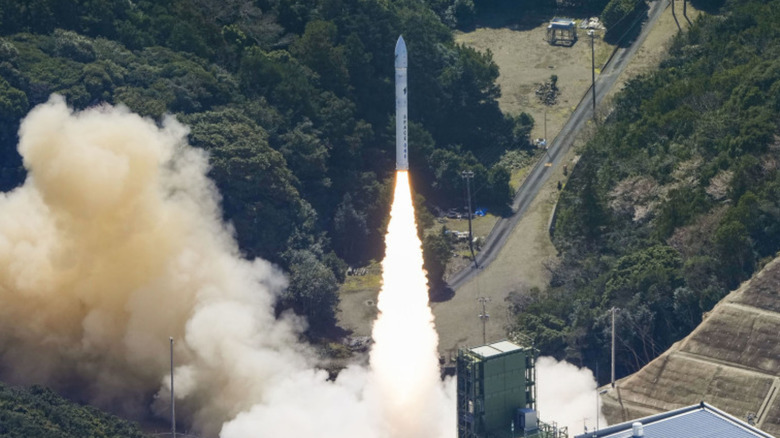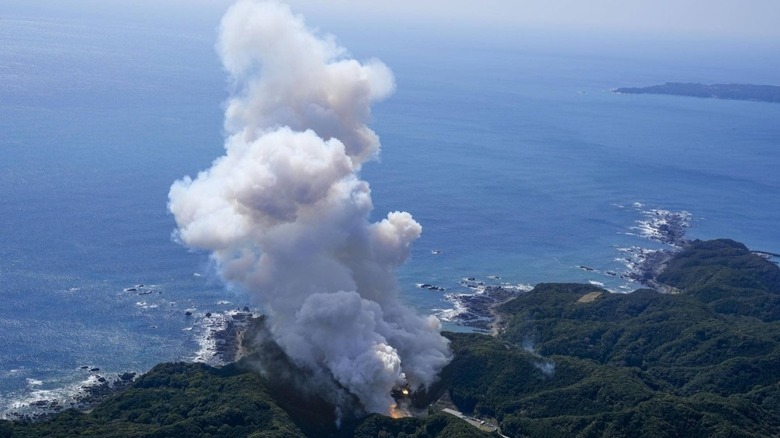Watch Japan's Kairos Rocket Explode Seconds Into Inaugural Flight
On March 13, Japanese startup company Space One's Kairos rocket exploded into a ball of flames seconds after liftoff during its inaugural flight in Kushimoto. The small 59-foot rocket was equipped with three stages of solid-fuel engines and a liquid-fuel, post-boost stage engine. On board was an experimental government satellite that was to act as a backup in the event Japan's intelligence satellites went offline.
Following the event, Space One president Masakazu Toyoda told Reuters that "the rocket terminated the flight after judging that the achievement of its mission would be difficult." According to Space One, the self-destruction function triggers when there is an error in the flight path or various systems that could result in the rocket posing harm to those on the ground.
Despite being mostly automated, the company noted that a handful of staff were still on the ground. According to Shuhei Kishimoto, governor of Wakayama prefecture, there were no injuries and the fire was promptly extinguished. If successful, Space One would have been Japan's first private firm to launch a satellite into orbit.
Space One's president doesn't like the word 'failure'
While the launch of Kairos may have looked like a disaster to onlookers, President Toyoda noted that it isn't the end of the road for Space One. "We don't use the word 'failure' because each trial brings us ... new data and experience for another challenge," Toyoda said in a statement to the press.
An unsuccessful rocket launch is par for the course when a space startup is finding its footing. Elon Musk's SpaceX, for example, has had its fair share of exploding rockets: Its first three launches ended with clouds of smoke and changed the company forever. Even after seven years of success, SpaceX experienced another failed launch with the CRS-7. These setbacks are costly, but essential as experiments when theory can only take you so far.
The Kairos explosion is especially forgivable considering that Space One, founded in 2018, is still in its relative infancy. That said, it will have to work hard to hit its ambitious goal of 20 rocket launches a year by the end of the decade.
Space One isn't the only Japanese company in the "space courier" business. The Japanese government has promised support for space startups to counter neighboring countries such as China with its own satellites. The government also sponsors the Japan Aerospace Exploration Agency (JAXA), which has shared plans for a moon rover. Like its competition, it has also been set back by an explosive launch, but continues to push forward.

